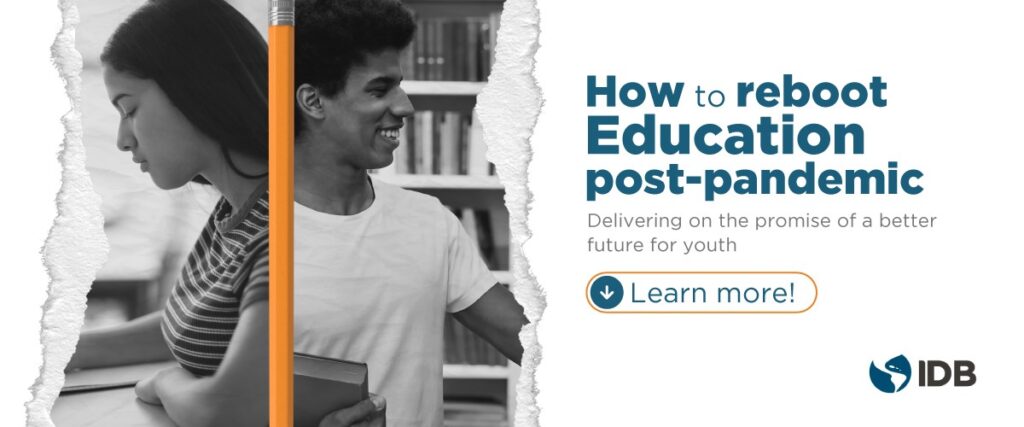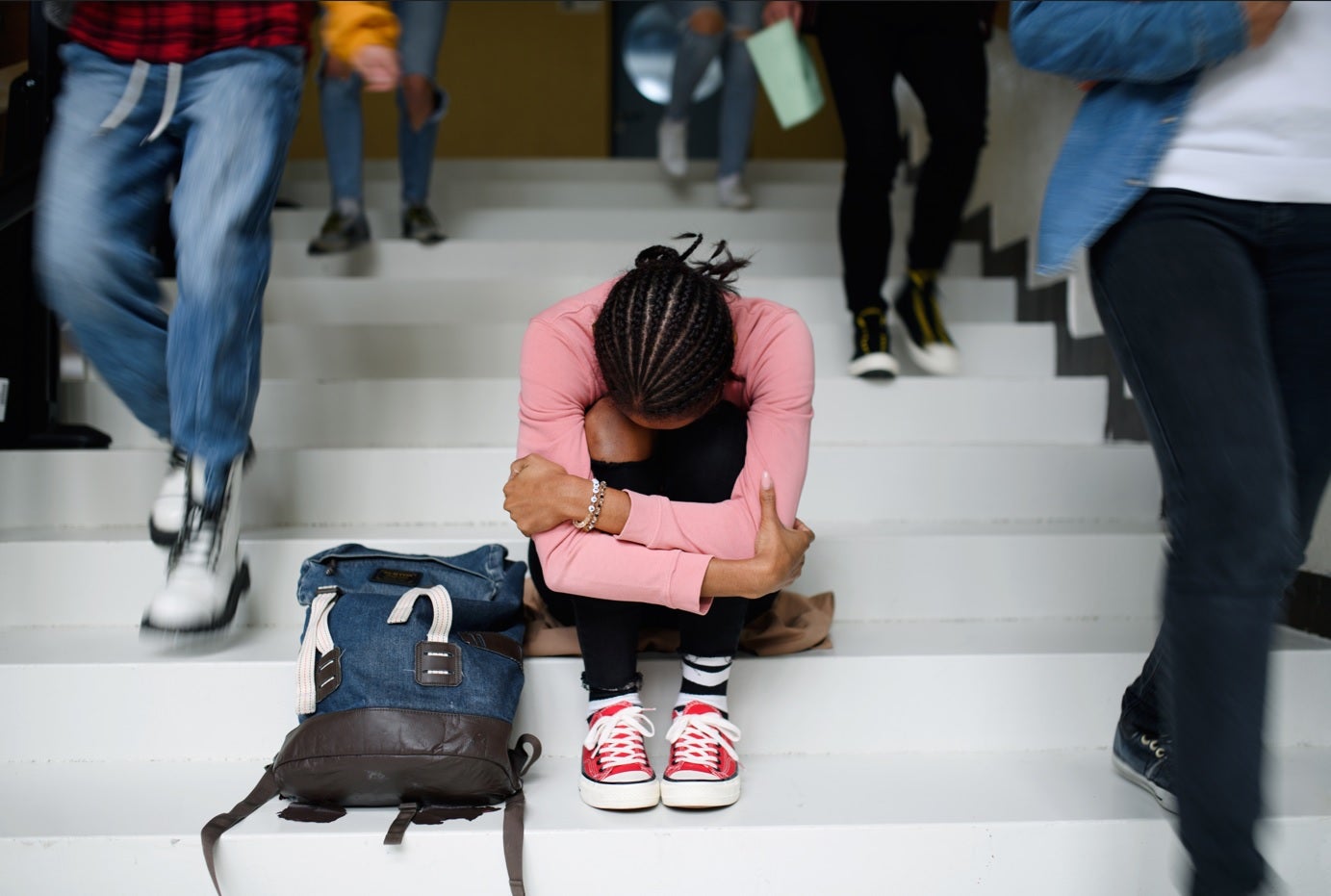Although youth tend to have milder symptoms from the COVID-19 virus, the pandemic has brought unprecedented changes and challenges into their lives and particularly their mental health. Pandemic-related school closures have disrupted their learning and isolated them from peers.
Many young people have been less physically active, had irregular sleep patterns and less favorable diets. The lost livelihoods or decreased wages of caregivers have thrown many young people into poverty. Increased substance abuse and domestic violence is exceptionally challenging for youth as they have lost the refuge that their schools provide in normal times. Many have lost caregivers or other loved ones.
A Youth Mental Health Crisis in Latin American and the Caribbean
Data is beginning to emerge from across the globe, suggesting that increasing numbers of youth struggle with depression, anxiety, and suicidal thoughts. In Latin America and the Caribbean (LAC), a 2021 IDB survey of some 5,000 11–18-year-olds in Belize, Colombia and Costa Rica begin to explore the effects of the pandemic on youth. The findings suggest a mental health crisis among LAC youth.
- More than 50% reported experiencing hyperactivity (55%) and emotional symptoms that they attribute to pandemic-related challenges (57%
- Female youth consistently report higher distress levels than their male peers.
- During the pandemic, youth exposure to trauma has increased exponentially, leaving schools struggling to respond to a mental health crisis at the same time as they are under great pressure to complete historic levels of unfinished learning due to school closures.
- Even in the best of times, educators in LAC assume the role of social workers, attending not only to learning needs, but also to socioeconomic and psychological needs of their students.
- Compounding the situation, incipient evidence suggests that teachers’ mental health has suffered in the pandemic. In an El Salvador survey over half of teachers report burnout, soaring anxiety, and stress related symptoms. On the spectrum of factors influencing teachers’ mental health, concern for their own safety and the engagement of students and their parents stand out.

To learn more about the immediate and long-term effects of the pandemic on this generation, download How to reboot education post-pandemic. Delivering on the promise of a better future for youth. Find the publication here.
What should an effective school-based mental health response look like?
Research from before the pandemic provides guidance. Leading theoretical models suggest that youth mental health should be promoted at multiple levels, from the individual and family levels to the school and community levels.
Effective school-based mental health strategies are often delivered through some type of Multi-Tiered System of Supports (MTSS) model. Such MTSS are used extensively in the United States and Europe, structuring school-based mental health interventions along three levels of support. According to student needs, the model ranges from universal preventative measures in Tier 1 to individualized and intensive support in Tier 3.
One advantage of a multi-tiered approach is that it allows for early identification and interventions before mental health challenges escalate. In every tier, the model involves the entire school community, including parents, educators, school administrators, and students (Gee et al 2020, Näslund-Hadley et al 2021). Given the importance of teachers’ mental health, not least during the COVID-19 pandemic, we add below a fourth transversal theme to the MTSS model.
- Tier 1 – Universal Mental Health Prevention and Promotion. The first tier involves the entire school community – from students and parents to teachers and administrators – in mental health awareness raising and the promotion of well-being and positive behavior for all. At this level of the MTSS model, the school implements a range of anti-violence and bullying measures. Schools also provide an ideal setting for screening youth to identify at risk students, often flagging students with mental health needs that were previously unknown.
- Tier 2 – Protective Support for Students at Risk. Based on screening conducted in Tier 1, at risk students are targeted in Tier 2 for early support. This includes preventative measures focused on students at risk to address anxiety, depression, emotional hardship associated to bullying, violence, abuse, substance consumption and behavioral disorders.
- Tier 3 – Referrals to Intensive Support Services. Whenever a young person displays complex signs of mental health distress, schools must have the capabilities to refer the student to a range of professionalized services. Schools are not only a reliable connector for students to those professional services, when these interventions take place in a school setting, some of the common barriers to traditional mental health services such as stigma, cost, time, and location may be reduced.
- Support for the Mental Wellbeing of Teachers. School-systems can support teacher mental wellbeing through a wide spectrum of interventions, ranging from regular check-ins with school directors and surveys of their mental health to structured opportunities to discuss challenges with fellow educators, and when needed counseling.

In the IDB’s new Flagship Publication we share more details on the MTSS model, recommendations, and concrete examples for how schools can foster resilience and mental health of students.
Let us know your thoughts in the comment section! What can education systems do to help students develop the resilience they need in these uncertain times? What actions can teachers and parents take? What possibilities can you imagine for your school or education system to promote the mental health of teachers?


Leave a Reply